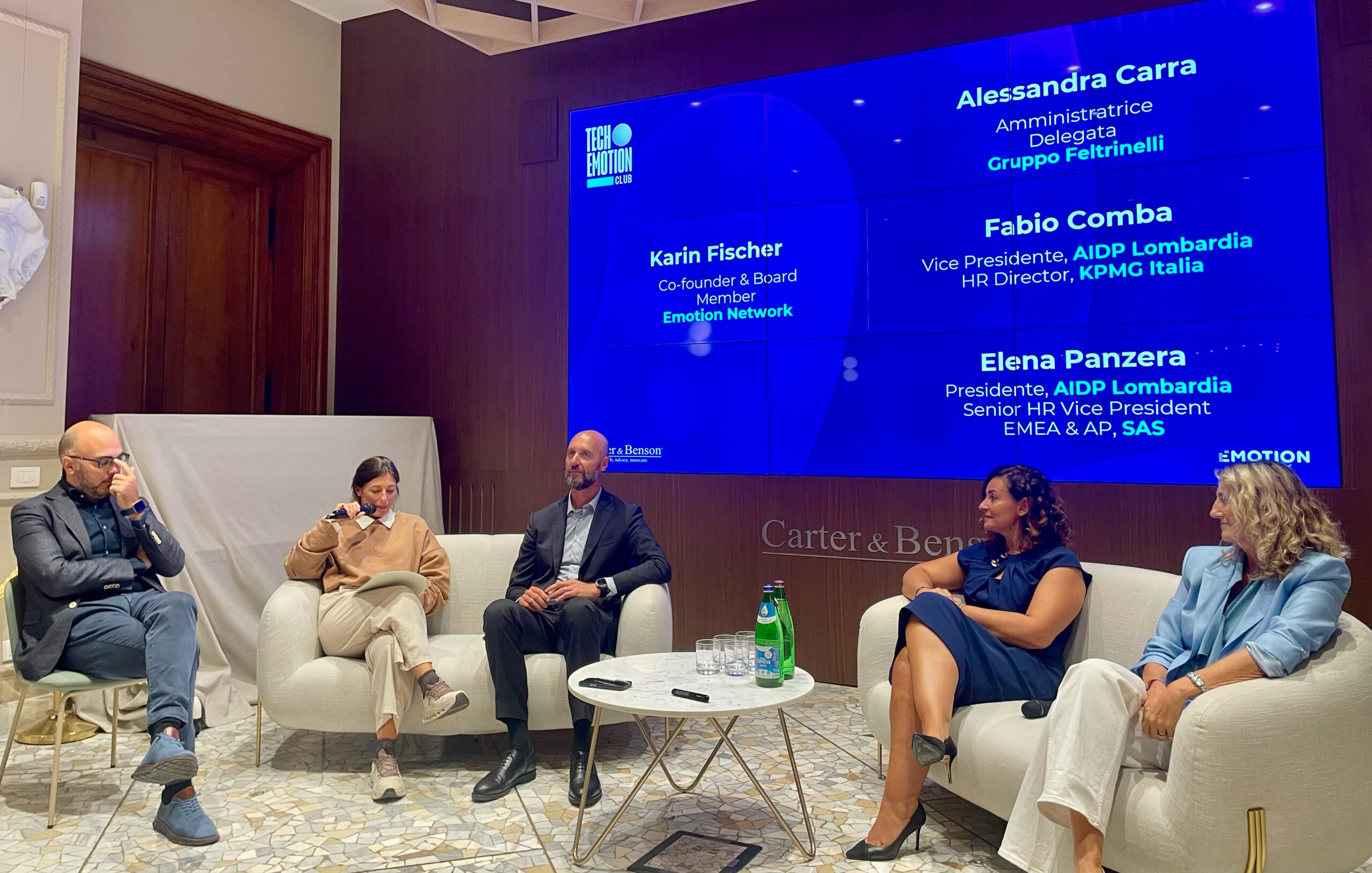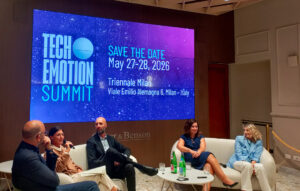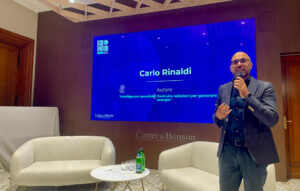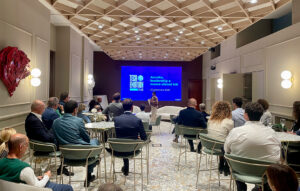
We are living through a profound transformation, one in which companies are called to rediscover their most human side. Technology is accelerating, work models are evolving, and the true challenge is no longer just efficiency, but sensitivity.
How can we guide organizations toward a form of leadership that listens, not just decides? How can we find balance between automation and attention, between digital tools and real relationships? From these questions came the desire to open a dialogue: to pause, reflect, and explore how the way we work, lead, and listen is changing.
On September 23, at the Milan headquarters of Carter & Benson, we hosted a new evening of the Tech.Emotion Club, a gathering designed for those who believe in the power of leadership and in the central role of people in shaping the future of business.
Joining the conversation were Alessandra Carra (CEO of the Feltrinelli Group), Fabio Comba (HR Director, KPMG Italy, and Vice President of AIDP Lombardia), Elena Panzera (Senior HR Vice President EMEA & AP at SAS and President of AIDP Lombardia), and Carlo Rinaldi, author of Sensitive Intelligence: Building Relationships to Generate Energy. The discussion was moderated by Karin Fischer, Co-founder and Board Member of Emotion Network.
The evening opened with a keynote by Carlo Rinaldi, who skillfully combined emotion and rationality, inviting the audience to reflect on a crucial question: “how can machine intelligence coexist with the sensitive and unrepeatable intelligence of human beings?”
From this idea emerged the concept of resonance, a shift “from ego to eco”, a perspective that invites leaders and organizations to move from the need to stand out to the ability to make space for others.
“Resonating,” Rinaldi explained, means building authentic relationships where energy is not consumed but shared, generating value for both people and organizations. He urged leaders to look beyond job titles and see sensitivity as a key skill for the leadership of the future. And he reminded us that technology, if used with awareness and purpose, can actually give us back the time and attention we need to cultivate what truly matters: people’s well-being at work.
Building on this foundation, the dialogue with Carra, Comba, and Panzera brought together complementary perspectives on leadership and people management. The vision of a CEO alongside that of two HR leaders committed to translating ideas into organizational culture.
Alessandra Carra spoke about the complexity of leading a cultural organization like the Feltrinelli Group: nearly two thousand people, ten publishing houses, and more than one hundred bookstores.
A true ecosystem where multiple generations coexist, with different expectations and languages. The real challenge, she said, is not only managing change, but preserving trust. Because corporate culture is not built through processes. It is built through everyday gestures.
Picking up the thread, Fabio Comba refocused the discussion on the human core of workplace relationships. “People in their twenties and people in their fifties,” he said, “want the same things: dignity, recognition, and growth. The language changes—but the aspirations don’t.” In a world where technology accelerates every process, the real competitive advantage remains human: the ability to understand, communicate, and build trust. Technical skills age quickly; relational skills mature. Creating workplaces grounded in empathy and listening, he argued, is not just an ethical choice but a strategy-one that transforms well-being into collective energy, benefitting both people and performance.
Elena Panzera then brought the focus back to listening as a fundamental skill for the future. She spoke about the need to build an architecture of listening, made up not only of tools but of sensitivity, of the ability to detect subtle signals in everyday behavior. These “weak signals” often reveal more about employee well-being (or discomfort) than any formal report. In this sense, technology can become a precious ally: it frees time and mental space, allowing us to focus on people and to build more genuine, conscious relationships.
The message that emerged from the evening was clear: the leadership of the future will not be measured by its ability to control, but by its ability to listen. It is a challenge that directly involves the HR function, which must become the driving force behind a culture of listening and organizational well-being.
If guided by this vision, technology can become a means to enhance what makes us truly human. Because the future of business will depend not only on how much we can do, but on how deeply we can listen and how well we care for people.



